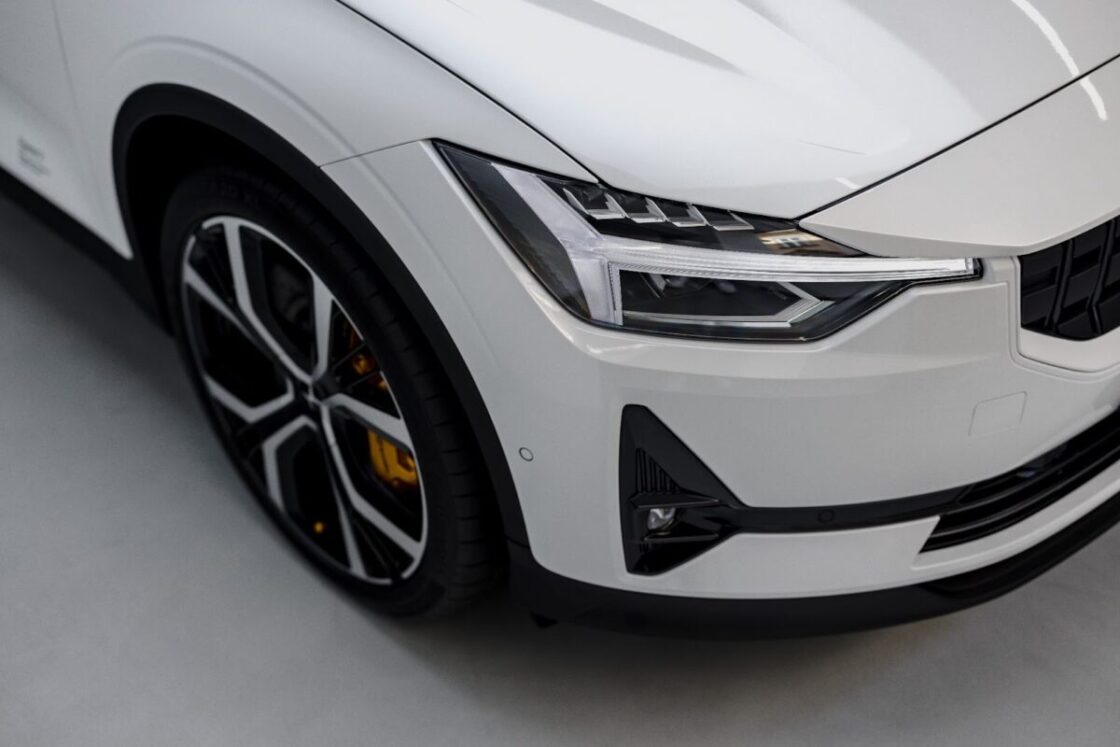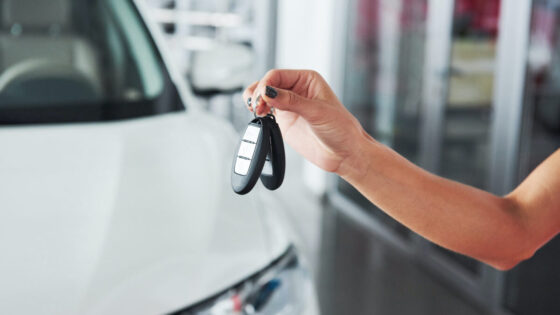How Much Does it Cost to Lease a Car?


Car leasing is a popular way to drive a new car without having to commit to buying it outright. Leasing a car allows you to pay a monthly fee to use the car for a certain period, usually 2-3 years. But how much does it cost to lease a car? Let’s dive into the factors that affect the cost of leasing a car, how to calculate the cost of leasing, negotiating tips, and the pros and cons of leasing a car.
What is car leasing?
Leasing a car is essentially renting a car for an extended period. When you lease a car, you don’t own the car outright, but you pay for the right to use it for a certain period. Car leasing typically requires a down payment and monthly lease payments, similar to car loan payments. At the end of the lease term, you either return the car or have the option to purchase it for a predetermined price.
If you’re still unsure whether to lease or finance a car, this article from Cars311.com offers a helpful comparison of the two options.
Factors that affect the cost of leasing a car
Several factors influence the cost of leasing a car, including depreciation, residual value, money factor, fees and taxes, mileage allowance, and maintenance costs.
- Depreciation is the amount of value a car loses over time. When you lease a car, you’re essentially paying for the car’s depreciation over the lease term. The more a car depreciates, the more expensive it is to lease.
- Residual value is the value of the car at the end of the lease term. The higher the residual value, the lower your monthly lease payments will be. Factors that impact residual value include the make and model of the car, the length of the lease term, and the expected mileage.
- Money factor is the interest rate you pay on the lease. The lower the money factor, the lower your monthly lease payments will be. Money factors are typically expressed as a decimal, with the lower the number, the better.
- Fees and taxes associated with leasing a car include the acquisition fee, disposition fee, and sales tax. These fees are typically included in your monthly lease payments.
- Mileage allowance is the maximum number of miles you can drive during the lease term. Going over your mileage allowance can result in fees.
- Maintenance costs are also factored into lease payments. The lessee is typically responsible for regular maintenance and repairs.
How to calculate the cost of leasing a car?
Calculating the cost of leasing a car can be complicated, but there are tools and calculators available to help you. Key terms you should understand when calculating lease payments include the money factor and residual value.
To calculate your lease payments, you’ll need to know the negotiated selling price of the car, the money factor, the residual value, and any fees and taxes associated with the lease. Once you have this information, you can use an online lease calculator to estimate your monthly payments.
Tips for negotiating a car lease

Leasing a car can be a great option for those who want to drive a new car every few years without committing to ownership. However, it’s important to approach the process of leasing a car with a bit of strategy in order to get the best deal possible. Here are some tips for negotiating a car lease:
- Research and compare lease deals
Before heading to a dealership, it’s important to do some research on the types of cars you’re interested in leasing and the lease deals available. Check out different dealership websites, lease aggregator sites, and consumer publications for information on current lease offers. Once you have an idea of what’s available, you can begin to compare and contrast deals to determine which is the best fit for your needs.
- Negotiating the price of the car
Just like when you buy a car, the price of a leased car can be negotiated. Start by researching the invoice price of the car you want to lease, which is the price the dealer paid the manufacturer for the car. From there, negotiate the capitalized cost of the lease, which is the amount you’re financing. The lower the capitalized cost, the lower your monthly payments will be.
- Lease contract terms
Read the lease contract carefully and make sure you understand all of the terms and conditions. Pay attention to fees, mileage allowances, and end-of-lease requirements. If there’s anything you don’t understand, ask the dealer for clarification. You should also be aware of any penalties or fees associated with breaking the lease early.
- Consider leasing incentives and discounts
Dealers may offer incentives and discounts on leases to help move inventory. These incentives could include cashback offers, low interest rates, or discounted lease payments. Be sure to ask the dealer if there are any current incentives available that could reduce the cost of your lease.
- Negotiating mileage allowance
Most lease agreements come with a mileage allowance, which is the number of miles you’re allowed to drive the car each year. If you go over the mileage allowance, you could be charged a fee for each additional mile. Negotiating a higher mileage allowance can help you avoid these fees, but keep in mind that a higher mileage allowance will likely result in higher monthly payments.
Depreciation
One of the main factors that affects the cost of leasing a car is depreciation. When you lease a car, you are essentially paying for the difference between the car’s purchase price and its expected value at the end of the lease term. The more the car depreciates over the lease term, the more you will have to pay in lease payments.
Factors that impact depreciation include the make and model of the car, the year it was manufactured, and its overall condition. Luxury cars tend to depreciate faster than economy cars, and cars with a high safety rating tend to hold their value better over time.
Residual Value
Another important factor to consider when leasing a car is residual value. Residual value is the estimated value of the car at the end of the lease term. The higher the residual value, the lower your monthly lease payments will be.
Factors that impact residual value include the make and model of the car, the length of the lease term, and the number of miles allowed under the lease agreement. To get the best deal on a lease, it’s important to choose a car with a high residual value.
Money Factor
The money factor is another important factor to consider when leasing a car. The money factor is essentially the interest rate on the lease, and it’s expressed as a decimal. The lower the money factor, the lower your monthly lease payments will be.
Fees and Taxes
There are several fees and taxes associated with leasing a car that can impact your overall cost. Some common fees include acquisition fees, disposition fees, and documentation fees. The acquisition fee is paid to the leasing company to cover the cost of setting up the lease, while the disposition fee is paid at the end of the lease to cover the cost of inspecting and selling the car. Documentation fees cover the cost of preparing the lease documents.
In addition to fees, you will also be responsible for paying taxes on your lease payments. The amount of tax you pay will depend on the state where you live and the terms of your lease. Some states charge sales tax on the full purchase price of the car, while others only charge tax on the lease payments.
It is important to factor in these fees and taxes when calculating the total cost of your lease. They can add up quickly and significantly impact your monthly payments.
Maintenance Costs
Another factor to consider when leasing a car is maintenance costs. While some leases include maintenance and repairs, others do not. It is important to read the lease agreement carefully to understand what is covered and what is not.
If maintenance is not included in your lease, you will be responsible for paying for any repairs or maintenance needed during the lease term. This can include routine maintenance such as oil changes and tire rotations, as well as unexpected repairs.
To keep maintenance costs low, it is important to take good care of your leased vehicle. Follow the manufacturer’s recommended maintenance schedule, drive carefully to avoid accidents, and keep the car clean and well-maintained.
Car safety technologies are becoming increasingly important to consumers, and they may also be included in a lease deal. Some of the latest safety features such as automatic emergency braking and lane departure warning systems can help prevent accidents and provide added peace of mind during the lease term. For more information on the latest car safety technologies, you can check out this article.
FAQ
A good lease deal is one that fits your budget and meets your needs. Look for lease offers with low monthly payments, low down payments, and reasonable mileage allowances. Also, consider the length of the lease term and any fees associated with the lease.
Yes, you can negotiate a car lease. Start by researching the car you want and the current lease deals being offered by dealerships. Use this information to negotiate the price of the car, the lease terms, and any fees associated with the lease.
Yes, you can lease a used car, but it is less common than leasing a new car. Used car leases may have higher interest rates and shorter lease terms than new car leases.
The amount you should put down on a lease will depend on your budget and the lease terms. Generally, it is recommended to put down as little money as possible to keep your monthly payments low. However, keep in mind that a larger down payment can reduce the total cost of the lease over time.
At the end of a lease, you will have the option to return the car, buy it outright, or lease a new car. If you choose to return the car, it will be inspected for any excess wear and tear, and you may be responsible for any fees or charges associated with the lease. If you choose to buy the car, you will need to pay the residual value of the car as outlined in your lease agreement. If you choose to lease a new car, you will need to negotiate a new lease agreement with the dealership.


